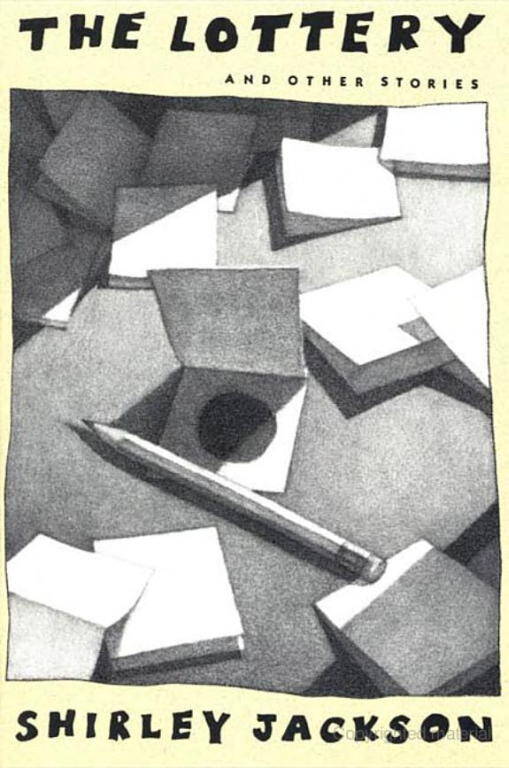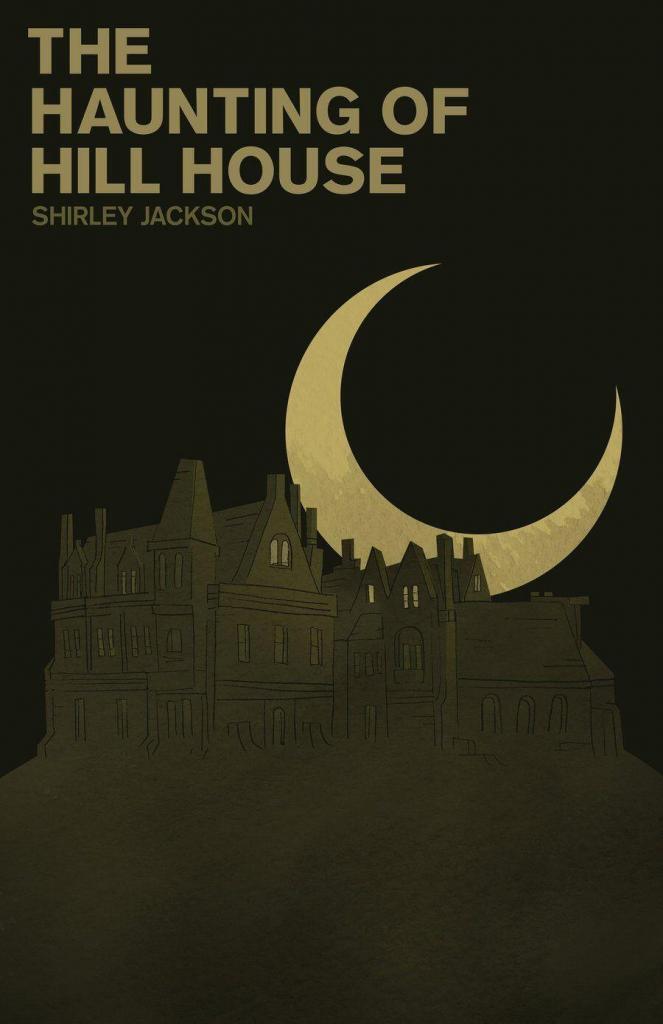The Lottery (1948)

The Lottery is a short story that Shirley Jackson wrote in 1948—it was written within the month of its first publication. It appeared within the June 26, 1948 issue of The New Yorker and describes a fictional account of a small town that participates in a lottery of sorts. This particular short story has often been described as “one of the most famous short stories in the history of American literature.”
Conceptually, two creative stories come to mind immediately after reading this story–no doubt the authors of which were inspired greatly by the Jackson original. The cult classic film The Wicker Man (1973), then later the novelization and The Hunger Games franchise both echo the idea of a ritual where the town comes together and holds what they call a lottery.
This lottery is, unfortunately, not the type that anyone hopes to win, but mirrors the dystopian attitude where the losers rejoice in the winner’s predicament. Without spoiling the entire story for anyone, let’s just say it’s most definitely worth the read (or simply listen below). What is truly interesting with this story–one that leaves the reader with a feeling of utmost terror and despair–is that Jackson apparently wrote within the confines of a single morning. The agreed-upon account of its creation is that Jackson came up with the idea for the story while she was shopping for groceries in the morning, came home, set her two-year-old daughter in her playpen to play, and had it finished before her son came home from kindergarten for lunch.
Talk about a whirlwind turn-around for something so utterly and terribly fantastic. Along with other myths that surround the creation of The Lottery, there was a time when people actually believed that the story was a factual report–this is in part due to the fact that at the time The New Yorker didn’t distinguish between fact and fiction when it came to the stories within its publications. As a result of the misunderstanding, much to the chagrin of Jackson, subscribers sent her several hundred letters that in her words could be summed up to, “bewilderment, speculation, and plain old-fashioned abuse.” It was especially alarming to her that some of the letters were from people who wanted to know where such lotteries were being held and whether they would be allowed to watch.
The Haunting of Hill House (1959)

This gothic horror novel stands in the same class as those by Edgar Allan Poe, Arthur Conan Doyle, and Bram Stoker—to the point of even being a finalist for the National Book Award in the category for best literary ghost stories published during the 20th century. While Shirley adhered more to the thrilling psychological aspects, which successfully elicited stronger emotions in her readers. It has since been adapted into two feature films, a play, radio theater, as well as a Netflix series which premiered in 2018, although considerable liberties were taken with Shirley’s original story.
Shirley’s initial idea for this particular novel came to her after she read about a real-life group of researchers from the nineteenth century who had spent time in a reportedly haunted house and then published their experiences while investigating the site. She spent quite a bit of time researching and studying floor plans of large, potentially haunted houses around the country, and also spent time reading several volumes on hauntings and ghost stories before she sketched out the grounds of Hill House, as well as the floor plan for the house itself. Suffice it to say, she took her time considering how the characters might move about the house and made sure she had a clear vision of how a haunting would play out in such a house.
Check out this trailer of the Netflix series of The Haunting of Hill House and see how this novel translated to a television series.
We Have Always Lived in the Castle (1962)

Shirley Jackson’s We Have Always Lived in the Castle was published in 1962—just a few years before the radical social movement of the 1960s and 1970s—and served as her reaction to the movement of traditionalism that followed the Second World War. The fifties was an exceptional decade when women were transitioning from having jobs that supported the war effort while the men were overseas, to being expected to stay at home in order to support their husbands by cooking, cleaning, and rearing children.
This novel takes place in a small New England town where the remaining members of the Blackwood family stay in their ancestral home—they seem to live a peaceful, if not removed life from the rest of the town and its oppressive atmosphere. The initial perception of the people in town is one of apprehension when the main character Mary Katherine admits the anxiety she feels when having to pass the general store when the men are sitting out front. The mood of the novel changes to reflect what many literary scholars believe might have been Jackson’s own response to the changing social climate of the fifties and how stifling it would have been to be a housewife with a job. It also bears mentioning that it brings attention to the ways women had been oppressed in the past, referencing witch hunts where women would be killed for even the slightest misstep.
We Have Always Lived in the Castle echoed a lot of the same themes that were found in her profoundly popular short story The Lottery, with special emphasis on the strange and hostile townspeople who take on the type of mob mentality that allows otherwise sensible people to commit horrible acts with little to no impact on their conscience. It is said that this particular novel served as inspiration to many writers—including authors like Neil Gaiman and Joyce Carol Oates—who, after reading Shirley’s work, felt liberated in taking leaps with horror, speculative fiction, and just enough realism to create creepy atmospheres within their own novels.
Take a look at the trailer for We Have Always Lived in the Castle (2019) and let us know what you think between the differences you’ve found between it and the original novel.
Looking back on a career like Shirley’s it’s widely believed that despite the fact that raising four children is an extremely difficult task, Shirley couldn’t have been such a literary success without them—after all, her first success, The Lottery came only a few months before Shirley was set to deliver her third child. A cringe-worthy moment came when the clerk asked Shirley her occupation, when she responded that she was a writer, the clerk responded that he was going to put down the occupation of housewife instead. While it was true that being a mother was one of her jobs, Shirley was more than just a mere housewife—in fact, she was the breadwinner of the family.
Shirley Jackson happened to be both a housewife and a “talented, determined, ambitious writer in an era when it was still unusual for a woman to have both a family and a profession.” The appearance of a conventional American household generated material for this sassy mother of four—who thrived on the tensions that it created between both roles. The expectations of herself, her husband, family, publishers, and readers gave life to her writing since what was normal for her was unspeakably abnormal for the time. She made this clear during the early years of her career, when she drew, “a muscular woman, looking disgruntled, [dragging] her husband off by his hair as another couple [looked] on worriedly. ‘I understand she’s trying to have both a marriage and a career,’ one says to the other.” The truth of the matter was, that Shirley’s career only really took off after she became a mother, having gained an empathetic view of developing minds and the well of imagination that she drew therein. In this respect, Shirley was not only a sensational author, she was an admirable role model for any woman who may have wanted to follow in her footsteps.
Index of Sources

Georgia-based author and artist, Mary has been a horror aficionado since the mid-2000s. Originally a hobby artist and writer, she found her niche in the horror industry in late 2019 and hasn’t looked back since. Mary’s evolution into a horror expert allowed her to express herself truly for the first time in her life. Now, she prides herself on indulging in the stuff of nightmares.
Mary also moonlights as a content creator across multiple social media platforms—breaking down horror tropes on YouTube, as well as playing horror games and broadcasting live digital art sessions on Twitch.
